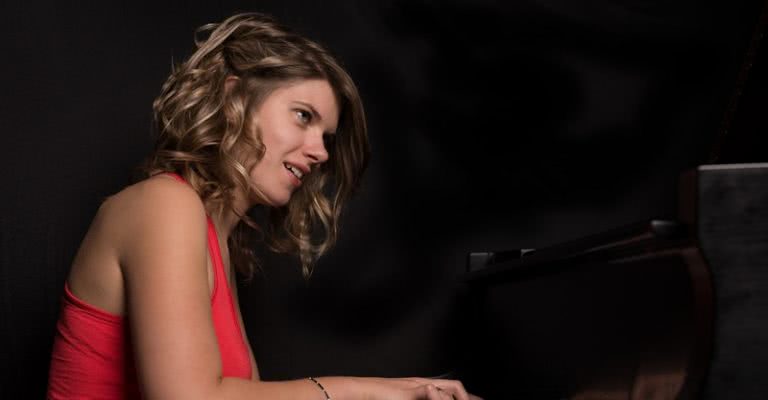When it comes to genre allegiances, musicians and music fanatics can be awfully conservative. A prime example is the once incontestable precept that one can either be a rock fan or hip hop fan, but never both. OK, so artists like Limp Bizkit make a convincing argument against these genres ever coming into contact, but the developments seen in recent years make this bias seem increasingly outmoded.
Perhaps an even tougher gap to bridge, however, is that between the worlds of pop music and jazz. This stalemate stems from an ambiguous notion of what defines each genre; roughly stipulating that jazz must remain pure, while pop must stay away from intellect. However, the times they are a-changin’. Right now, songwriters like Montreal pianist Emie Rioux-Roussel are proving that jazz can embrace elements from other genres without forgoing authenticity.
“I think we should democratise jazz,” she says. “Make it known and show people that it’s not elitist music. I think this is even truer today. Jazz is now influenced by all kinds of music; classical, pop, rock and R&B. So we can’t be prisoners of an era. We have to experiment and make music that reflects the times we’re living in.”
A career in music was perhaps inevitable for Emie, whose father Martin Roussel is also a well-known jazz pianist. After learning the ropes from him, she completed a university degree in jazz performance. Roussel’s learned background is evident throughout her latest record, Transit. Whether it’s a whimsical glissando or a transition between two disparate sections, everything is executed infallibly. Despite this, she isn’t constantly referring to the theoretical handbook.
“It’s hard to ignore theory because I learned and assimilated it,” she says, “but when I compose I try as much as possible not to think about it and just go with what I hear and feel. I think this allows the writing to come more freely. Being less trapped in theoretical rules, the result is more coherent and felt.
“I compose in two stages,” she adds. “In the first, I try not to impose any markers or boundaries, so it’s not very structured. After that, I play what I’ve written again and structure it with defined sections, but I don’t put any limits on the number of sections or insist on a specific number of measures. What’s important is that it sounds good.”
Roussel is joined by bass player Nicolas BОdard and drummer Dominic Cloutier to form the Emie R Roussel Trio. As well as the core trio, a string quartet features prominently on Transit. It might be Roussel’s name on the banner, but the input of her bandmates is crucial.
“We share all our ideas and our points of view on the pieces,” she says. “I’m lucky to be working with Nicolas and Dominic. They’re excellent musicians who are very conscientious, and they’re also very good friends. They’re like a second family to me. The more we get to know each other personally, the more fun we have and the better we play together.”
Roussel and co. make their way Down Under this week for a run of Australian club shows. When playing live, theory truly takes a back seat.
“I think the music should speak for itself,” Roussel says. “Each show is different because we’re in different places with a different audience and we don’t always feel the same things. That’s what makes it interesting. Sometimes the music takes us to areas we hadn’t anticipated. I think we should just let ourselves go with that and not try to control it. The music decides.”
Transit out now through Espace EmergenceatFoundry616onFriday December 12, tickets online.


































